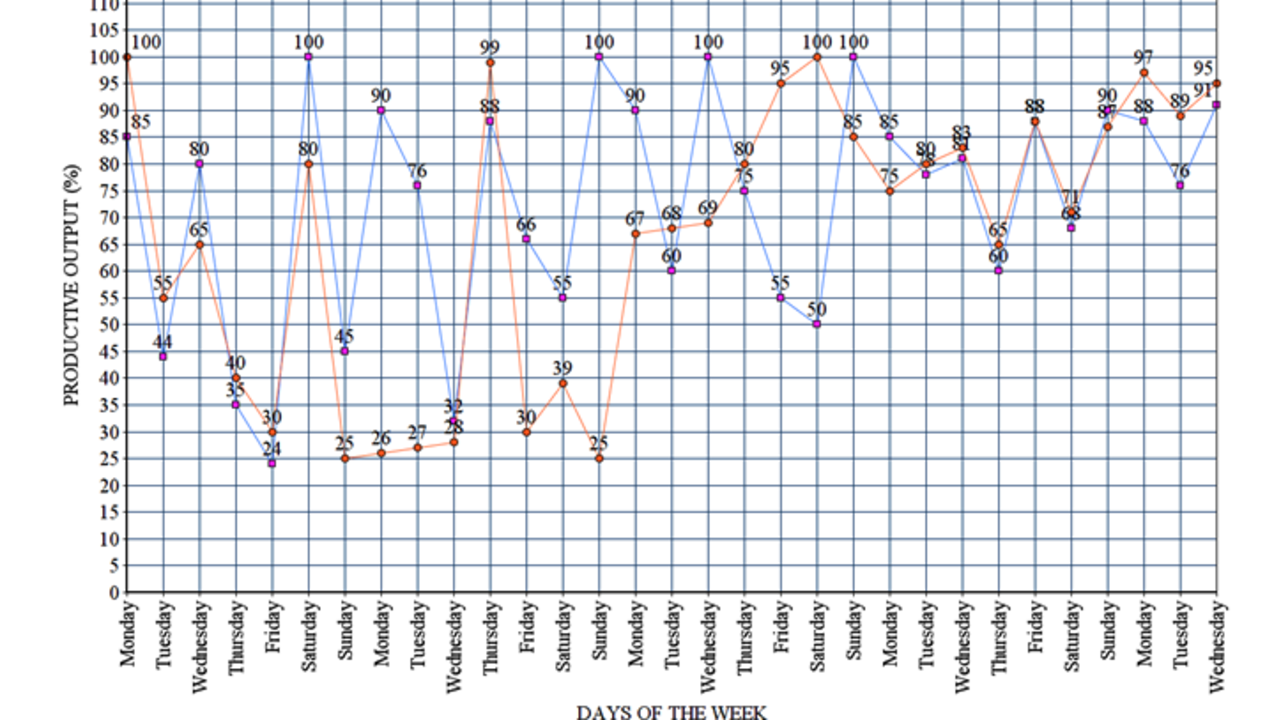Grappling To Grasp One’s Own Graph

In the Facebook video with a caption “Judge Yourself By Your Own Graph NOT Others!” Ryan Kingslien laid out various points on how we have to judge ourselves in comparison to other artists.
He was inspired by his deceased father-in-law from whom he acquired his most important insight: “Don’t judge yourself by other people. Judge yourself by your own graph.”
With the said acumen, the speaker demonstrated how we typically compare ourselves to others, on how we think that they are far better on particular matters than us. Moreover, he used linear graphs to represent how we perceive ourselves improving as well as how we gauge the present achievement of some other subject. Initially presenting two sets of linear graphs, the first one tackles how we jump from one point to another in terms of skills while the other one attempts to match our growth with that of someone else’s.
Given the said portrayals, the speaker reiterated how the aforementioned linear view of ourselves is inaccurate because it does not take account of self’s in-between fluctuations, faultily assuming that we are constantly and simply getting better through time. He demonstrated how erroneous this prevalent viewpoint is by clarifying that there are times we are indeed excellent at something, then times when we just suddenly fall into mediocre if not unsatisfactory outcome. It is not a direct or straight improvement as the speaker elucidated. There are ups and downs in the process as he has alternatively displayed using other non-linear graphs.
These variabilities as Kingslien argued showed how we must not oversimplify our state and ability to progress; otherwise, we will be prone to “endless frustrations” for it is an unfitting way to look to other people in order to grow.
He even approximated that “80 percent of any equation is not skill but rather psychology, or strategy.” His main point is that it is our mindset which largely affects us. And if we do no break free from the said disruptive mentality, we might be wasting time as he did.
He further states that there is an innate spectrum within us and with everything that we do, like we have different talents on multiple things. We may be good in technical stuff but not in artistic, or the opposite. Understanding oneself by one’s own graph means that we recognize our multiple levels of abilities, Kingslien pointed out.
As what the speaker noted, people do not usually allow themselves to fail for we often equate failure to mistake. However, he contended that failure in other things may mean an eventual success of something else. Sometimes, it is merely a tradeoff.
 - self graph.png)
A scientific outlook can also be applied in our way of assessing ourselves based on his statements. There will be some points wherein a person will not be able to do something due to some factors such as procrastination, self-loath, self-pity, and the likes. For him these distractions delay things and prolong suffering. If a person has to do something, then he must not think first if people will like it. It appears, in his sheer credence, to be negligible. He asserts that if people don’t like the output, then “screw them.”
The speaker’s main ideas can be simplified into the following.
a. Our skills are not just constantly getting better; there are fluctuations.
b. We have multiple abilities; each one has varying levels.
c. A person may be good at X, but another may not be, or vice versa.
d. Failures may open opportunities for success.
e. Focusing on the things one is already good at and working on the things needed to improve is an effective self-management.
The speaker in the said video, Ryan Kingslien, thoroughly demonstrated that artists have to appreciate themselves and must have a renewed mindset in order to grow better. It is his challenge that we have to properly reshape our thinking in order to shape our development as well which we can attain if we judge ourselves by our own graph and not others.
Stay connected with news and updates!
Join our mailing list to receive the latest news and updates from our team.
Don't worry, your information will not be shared.
